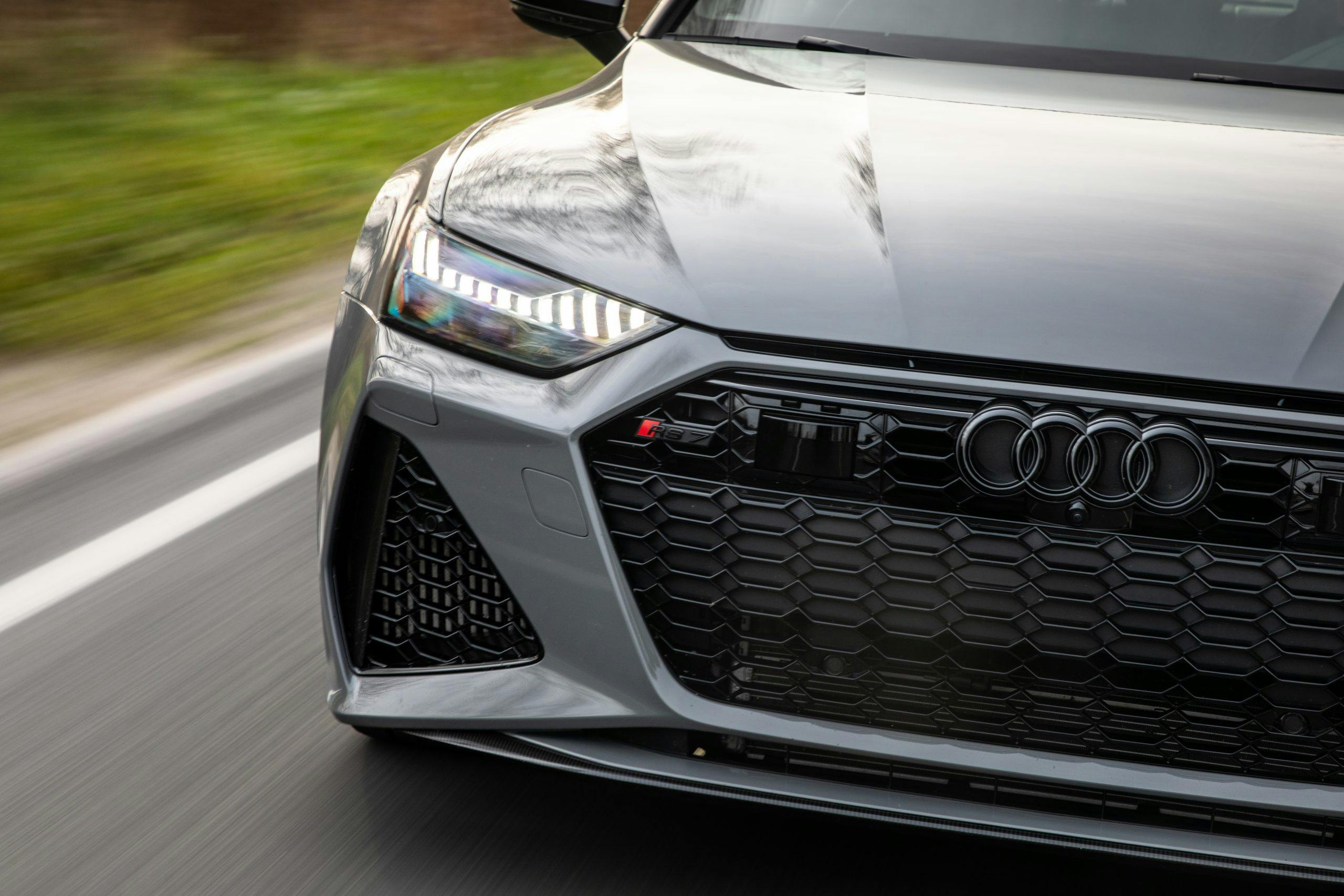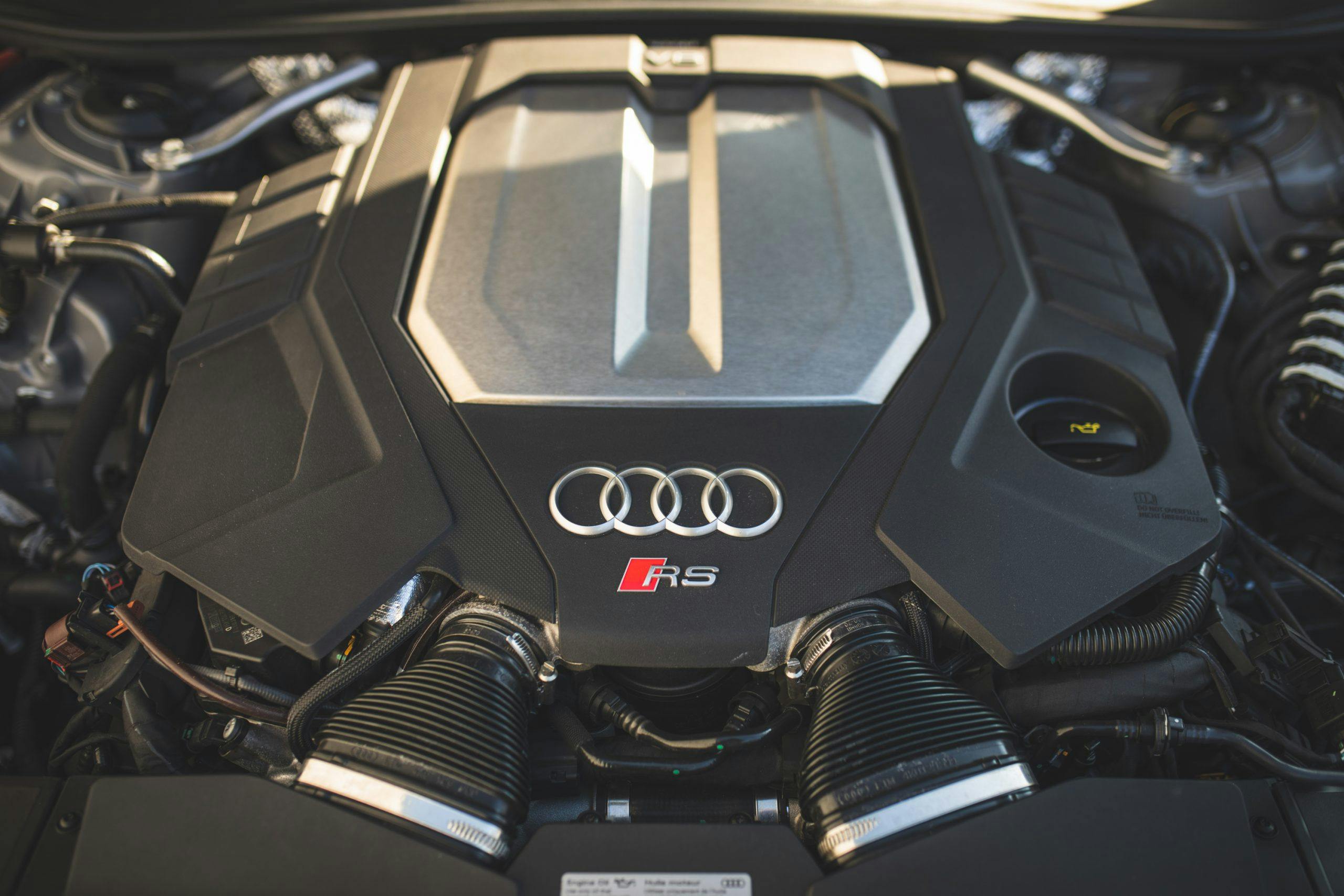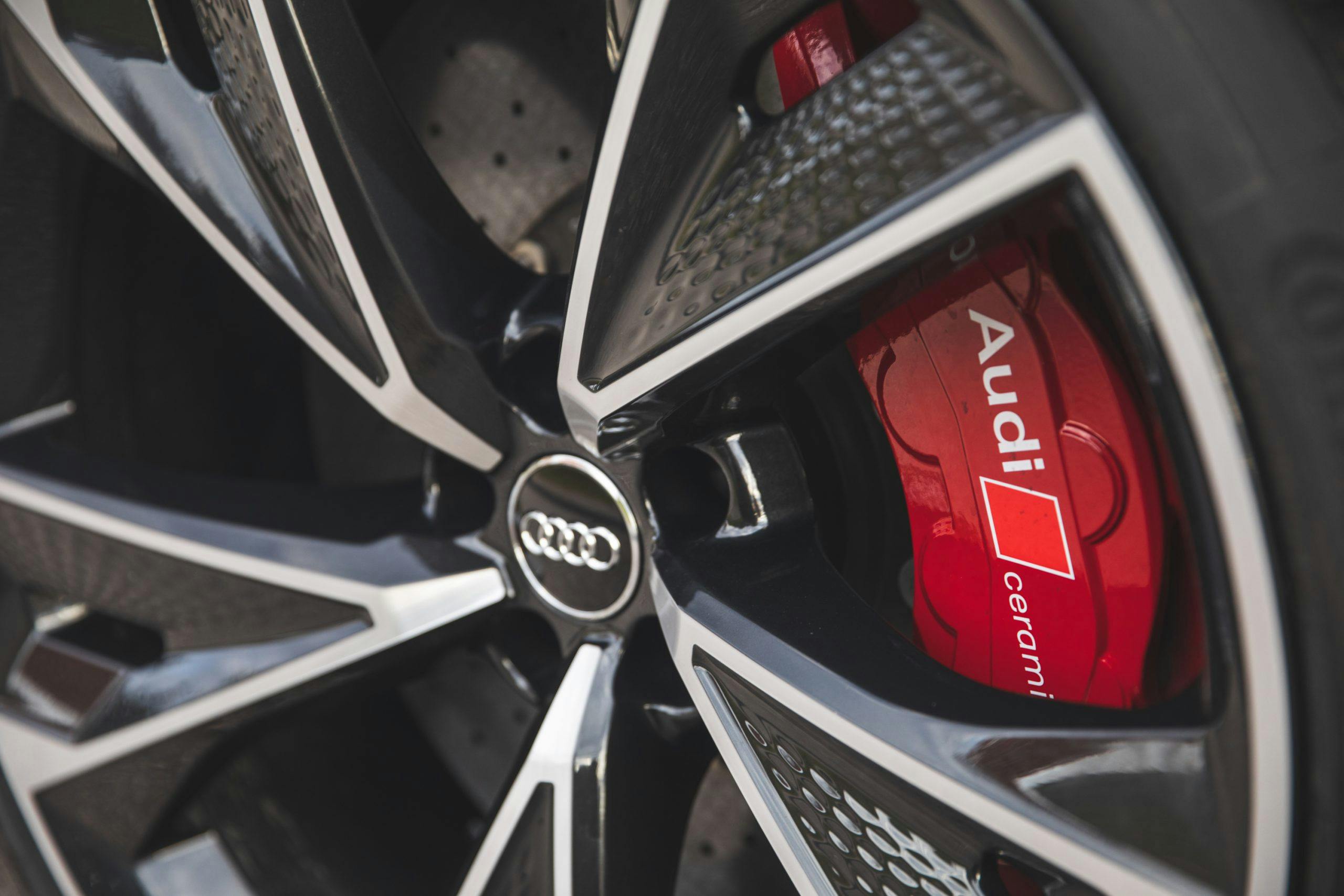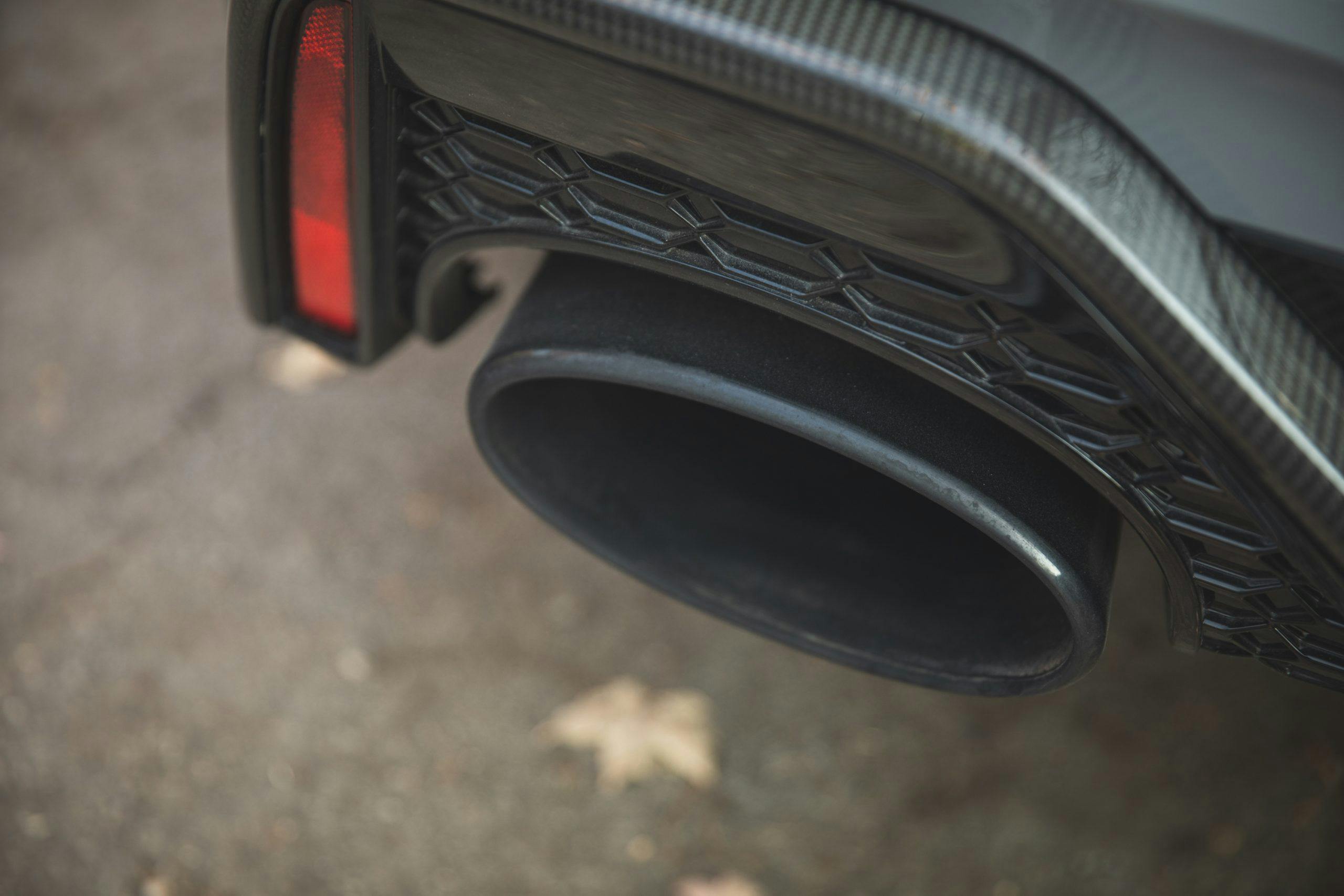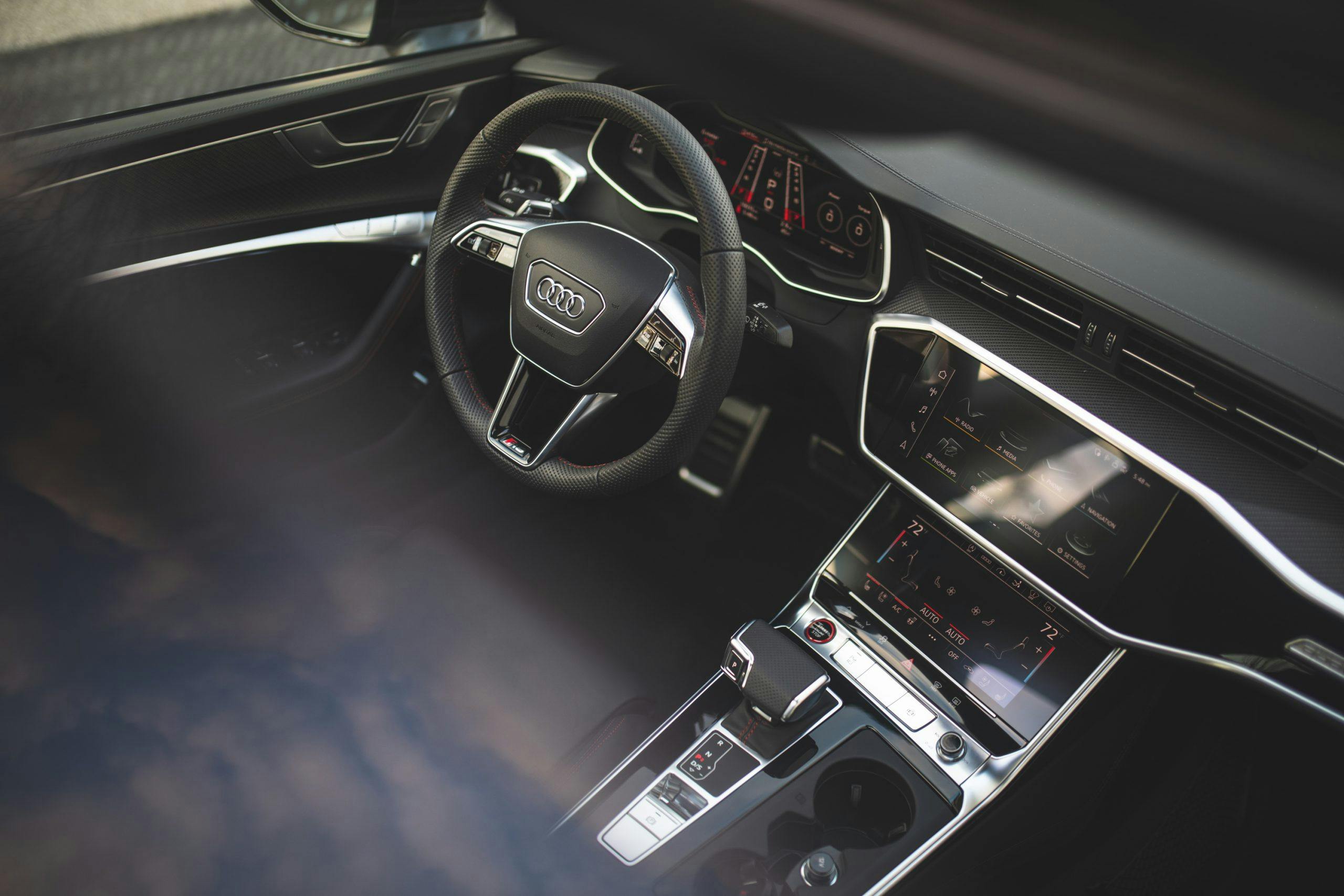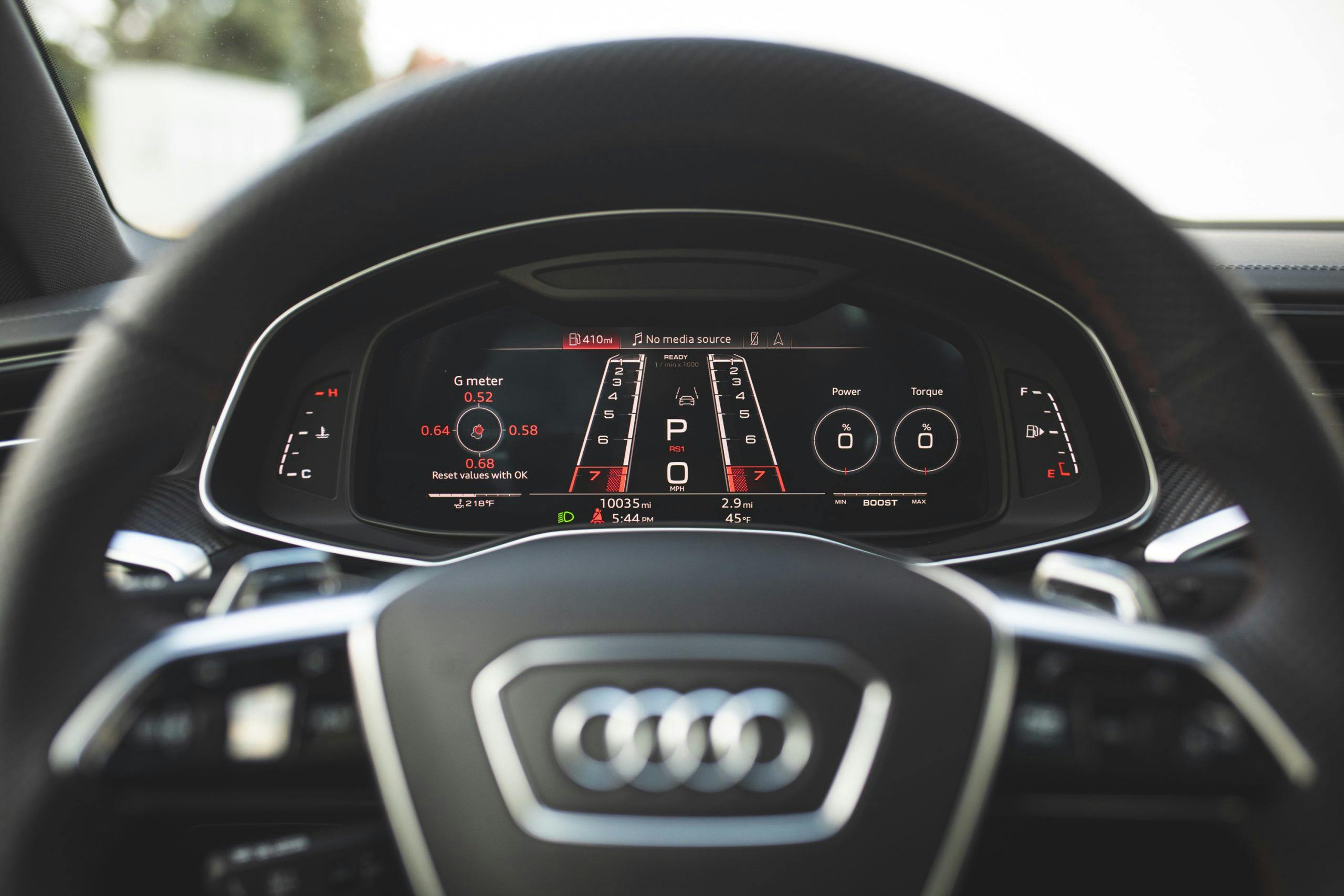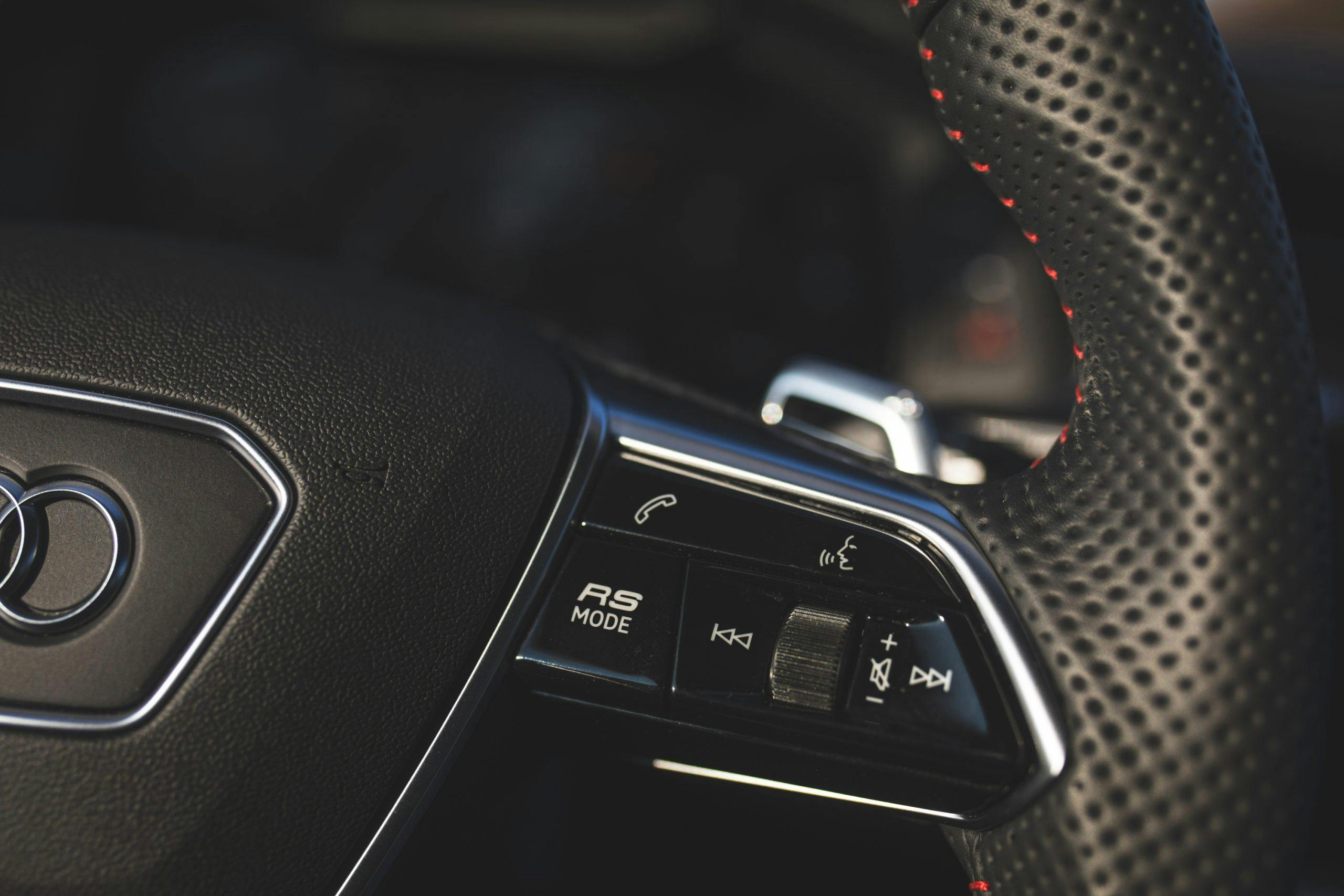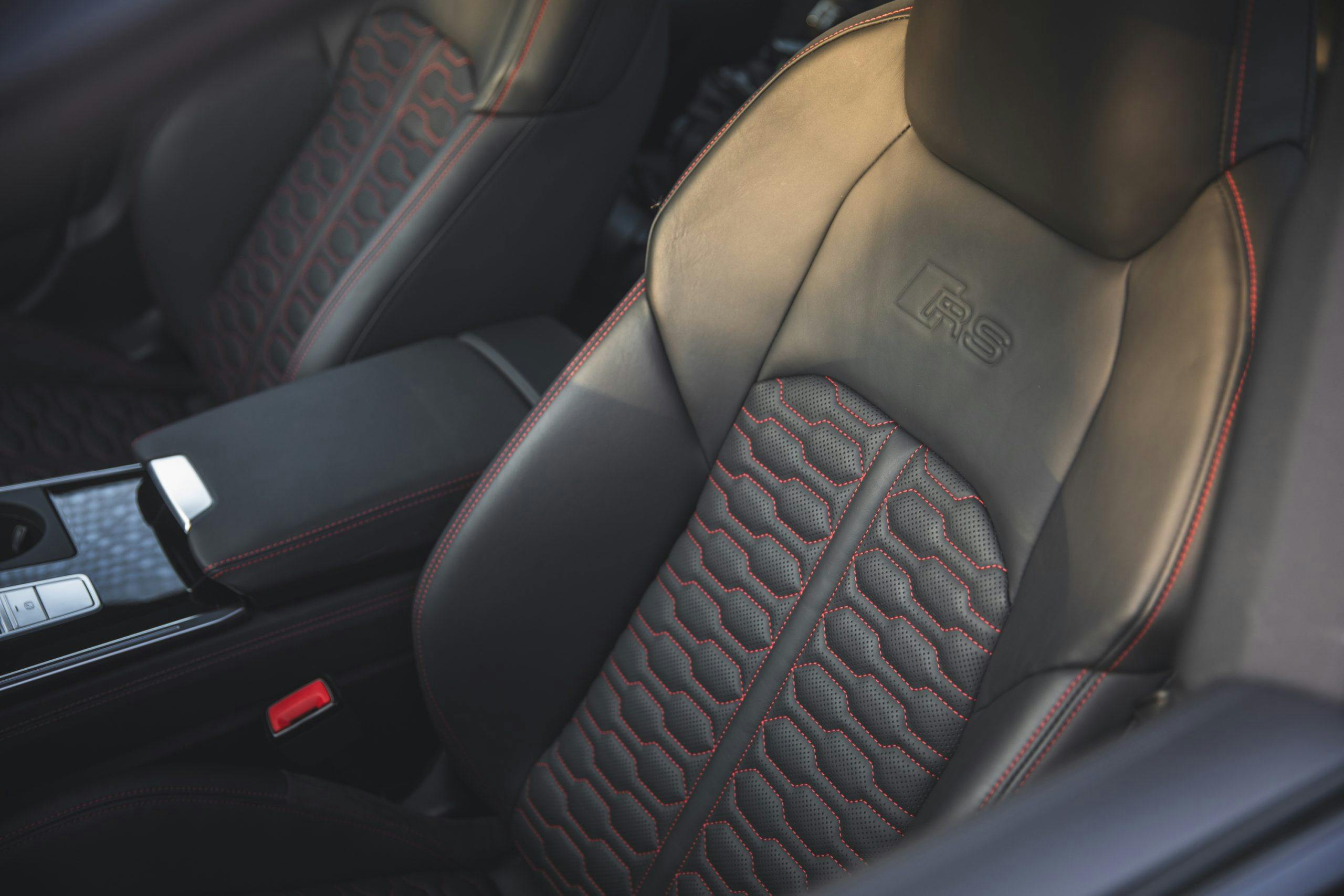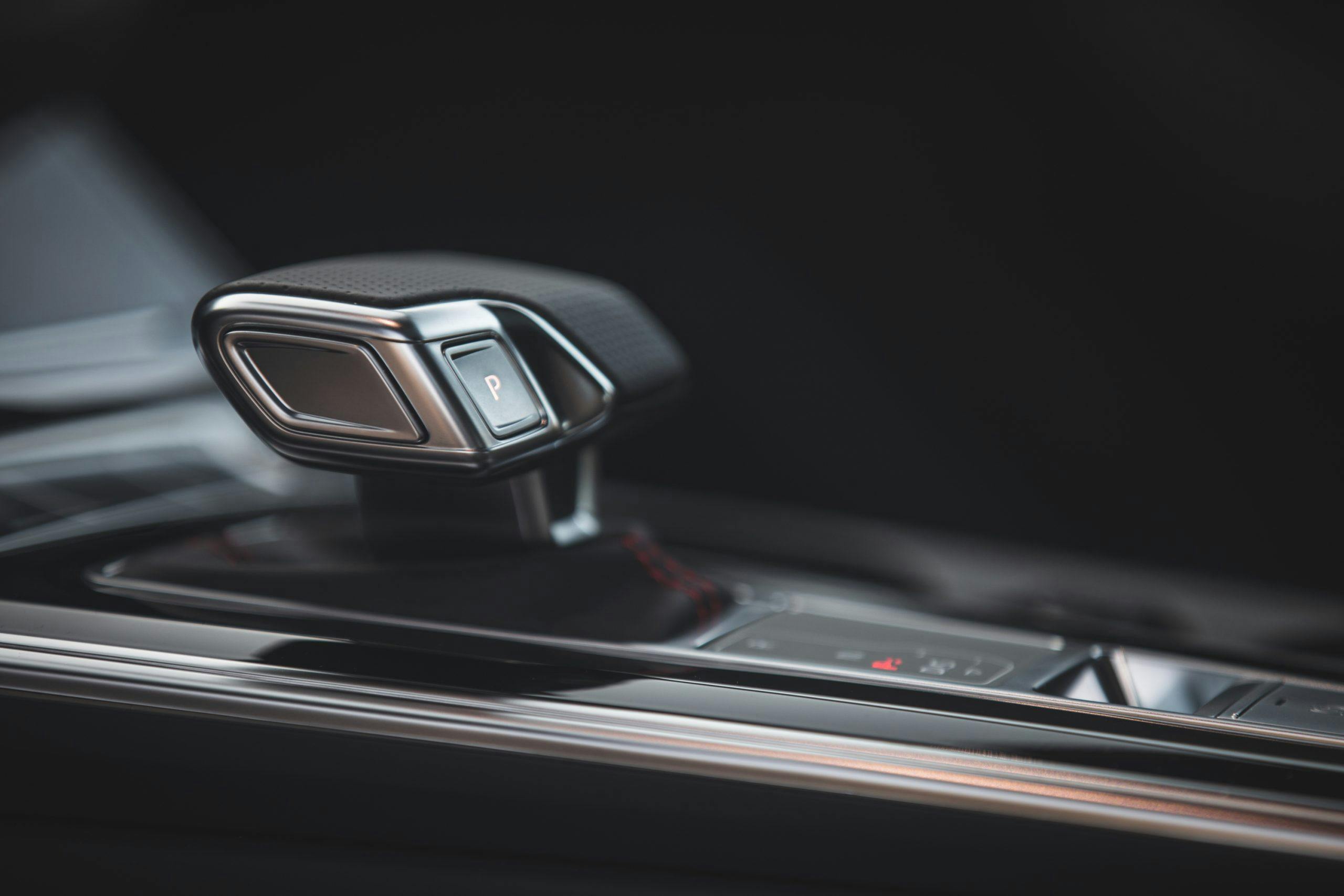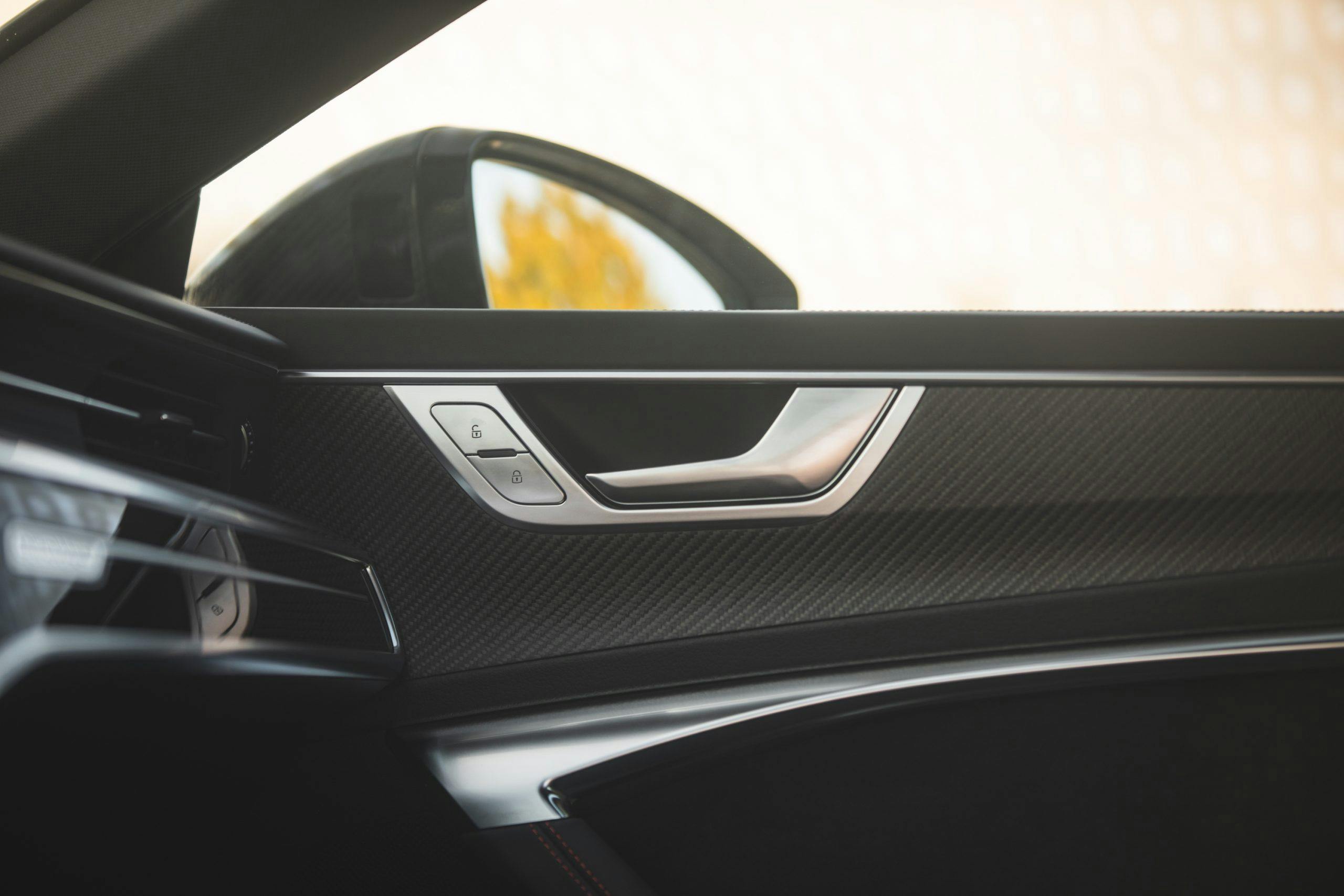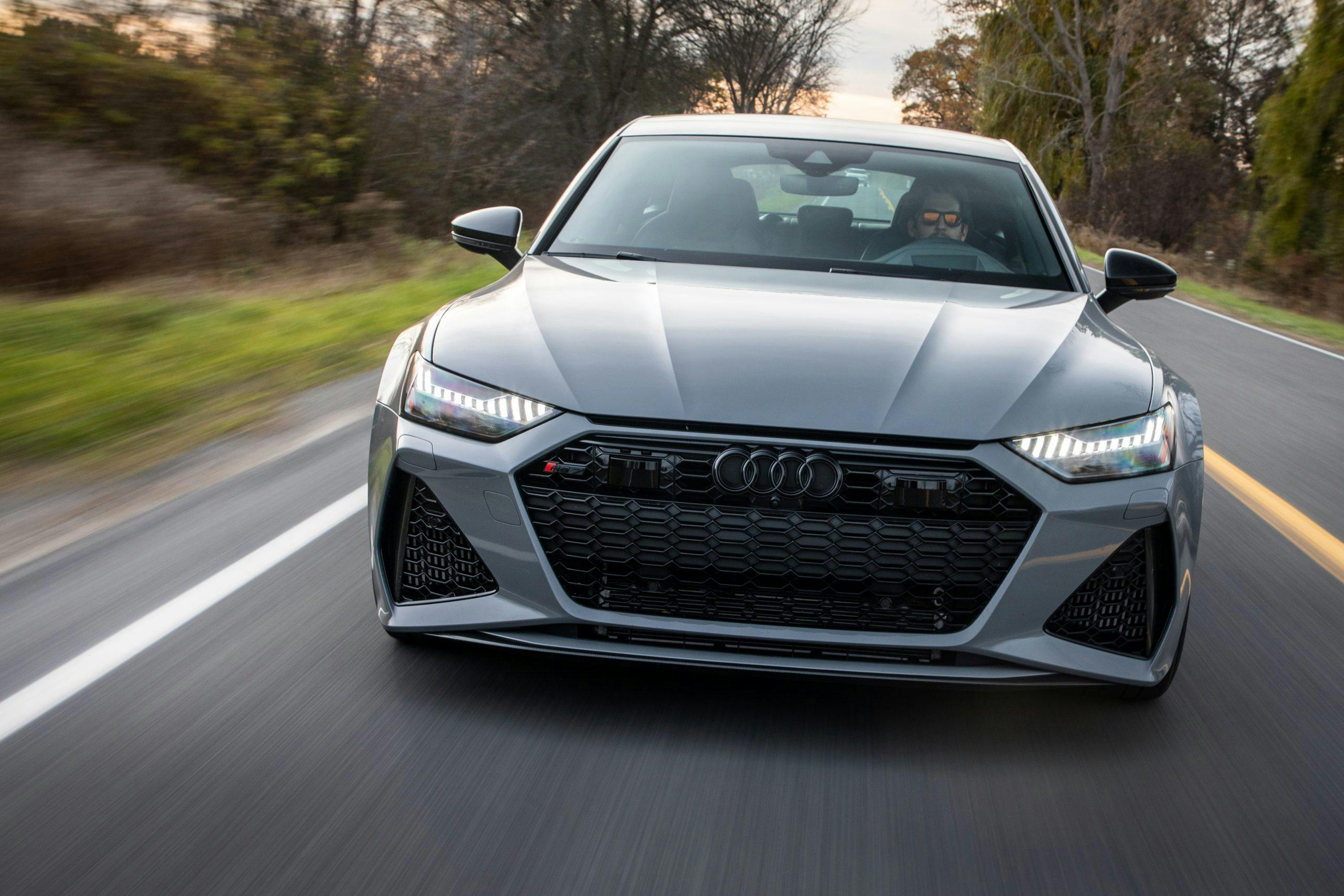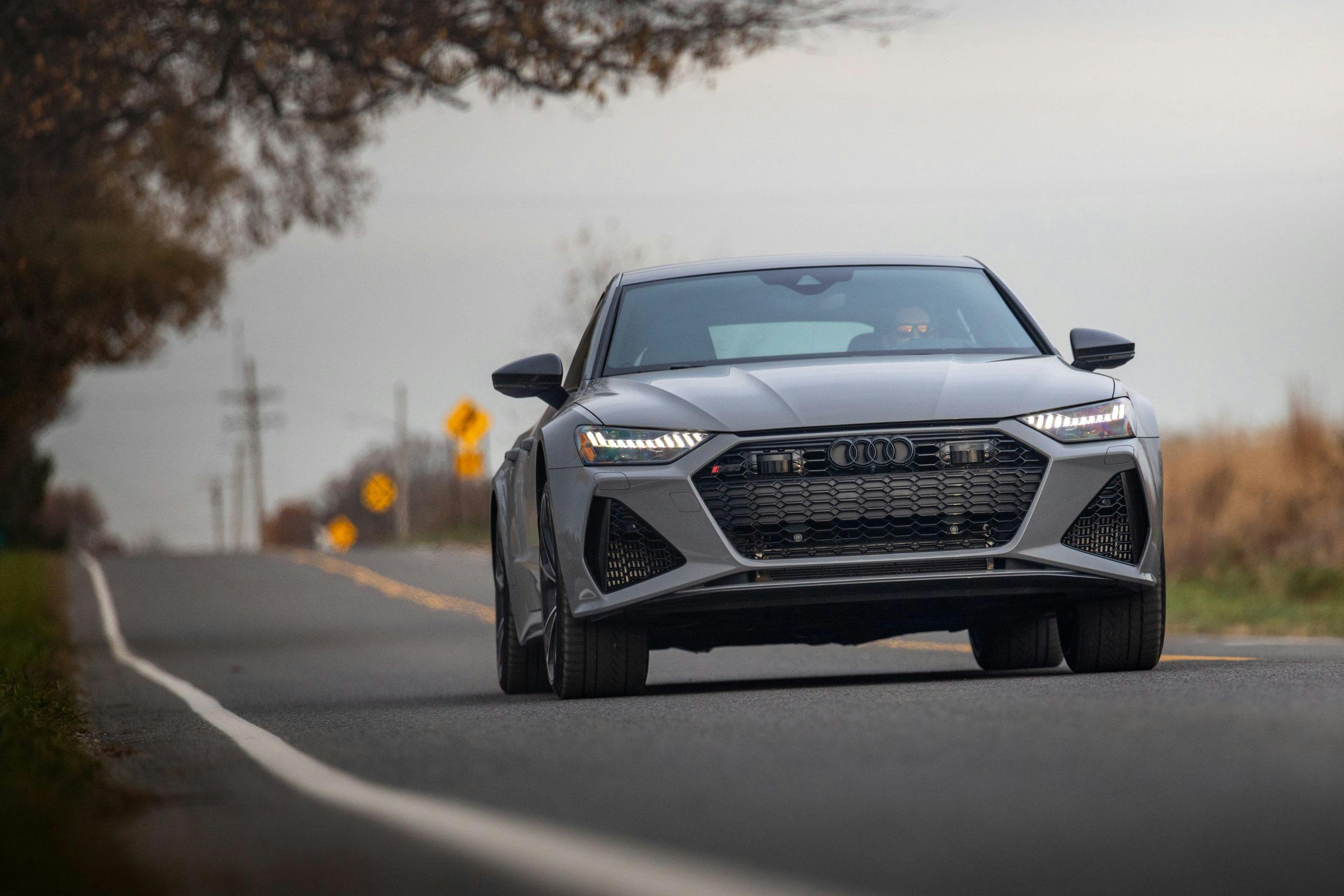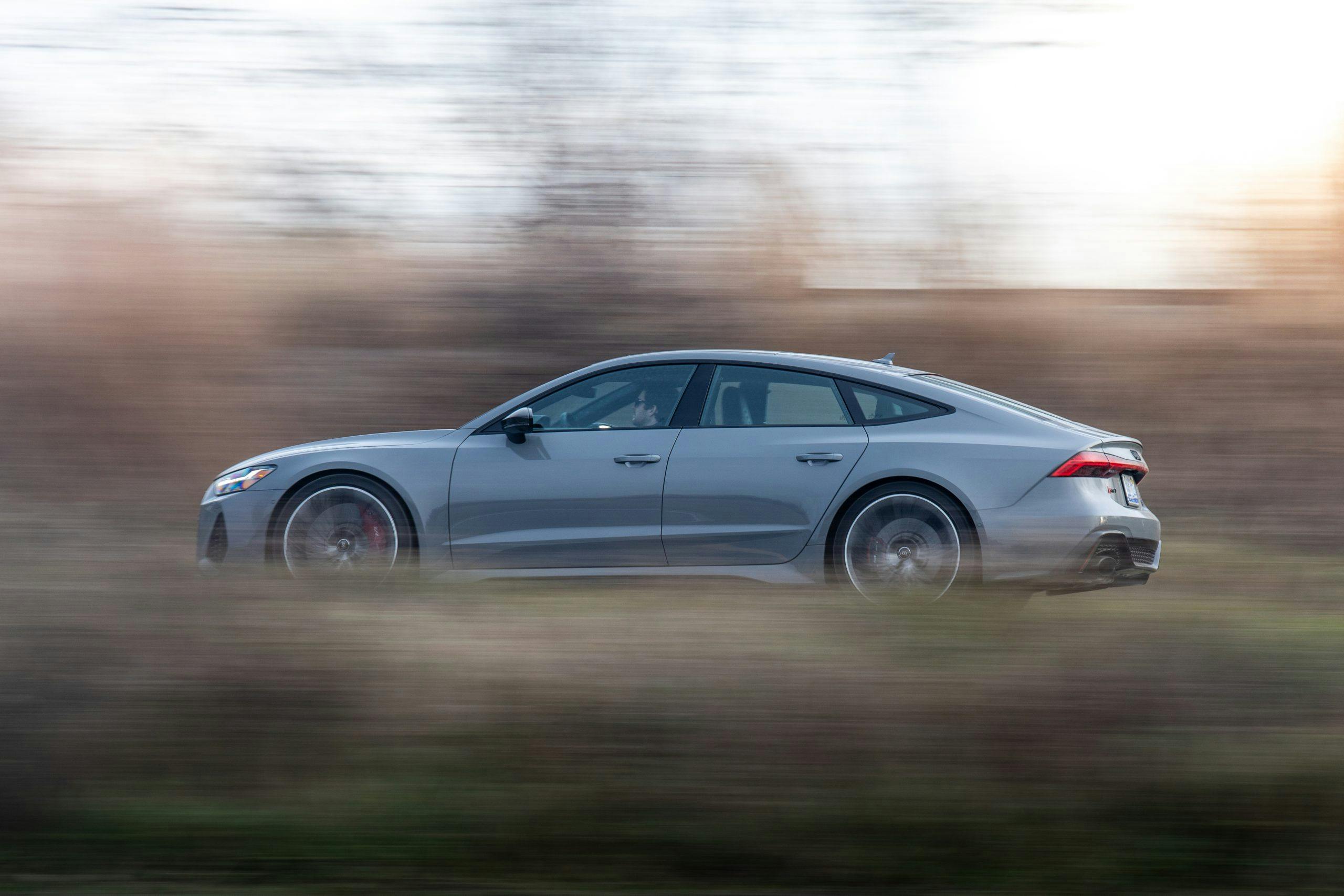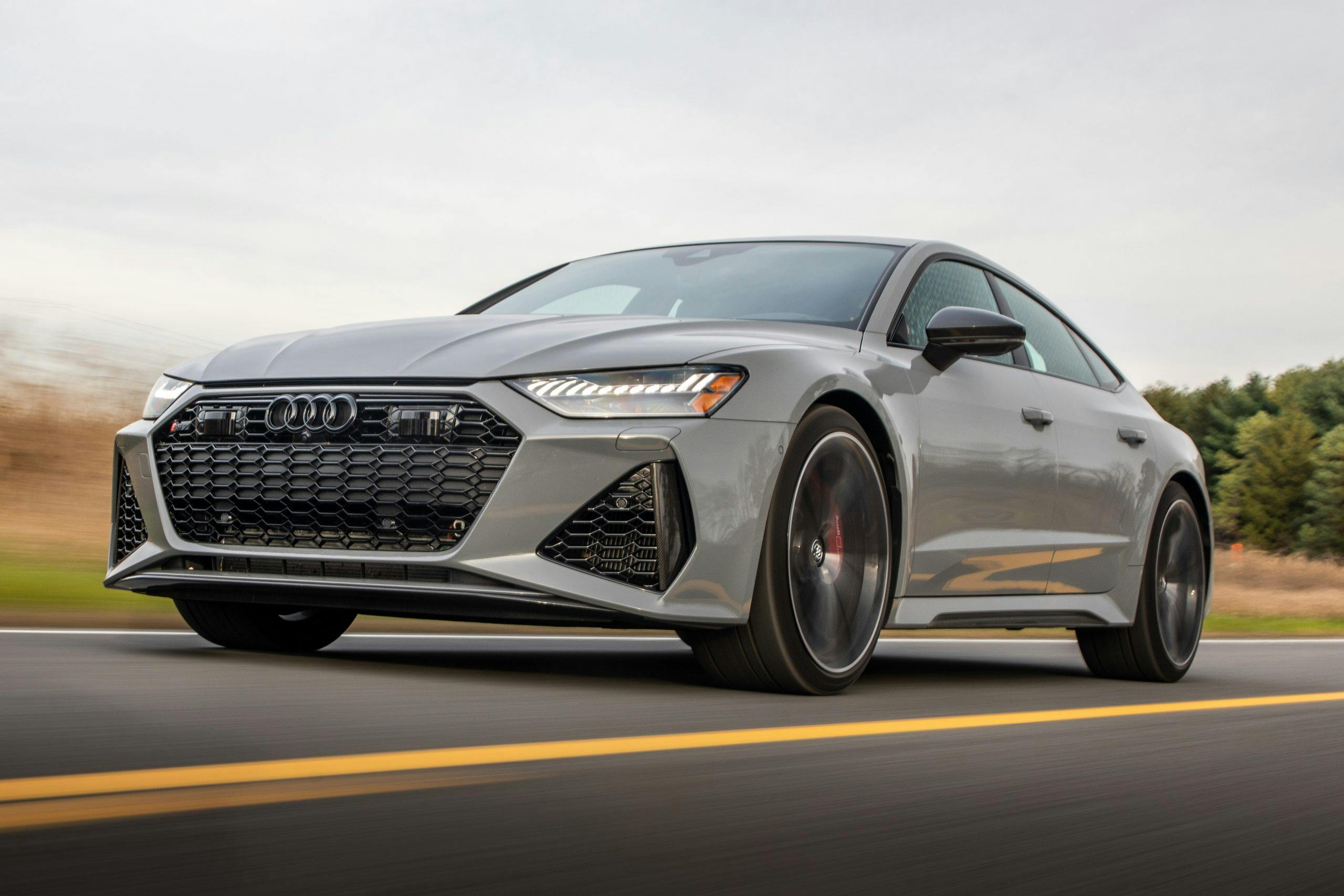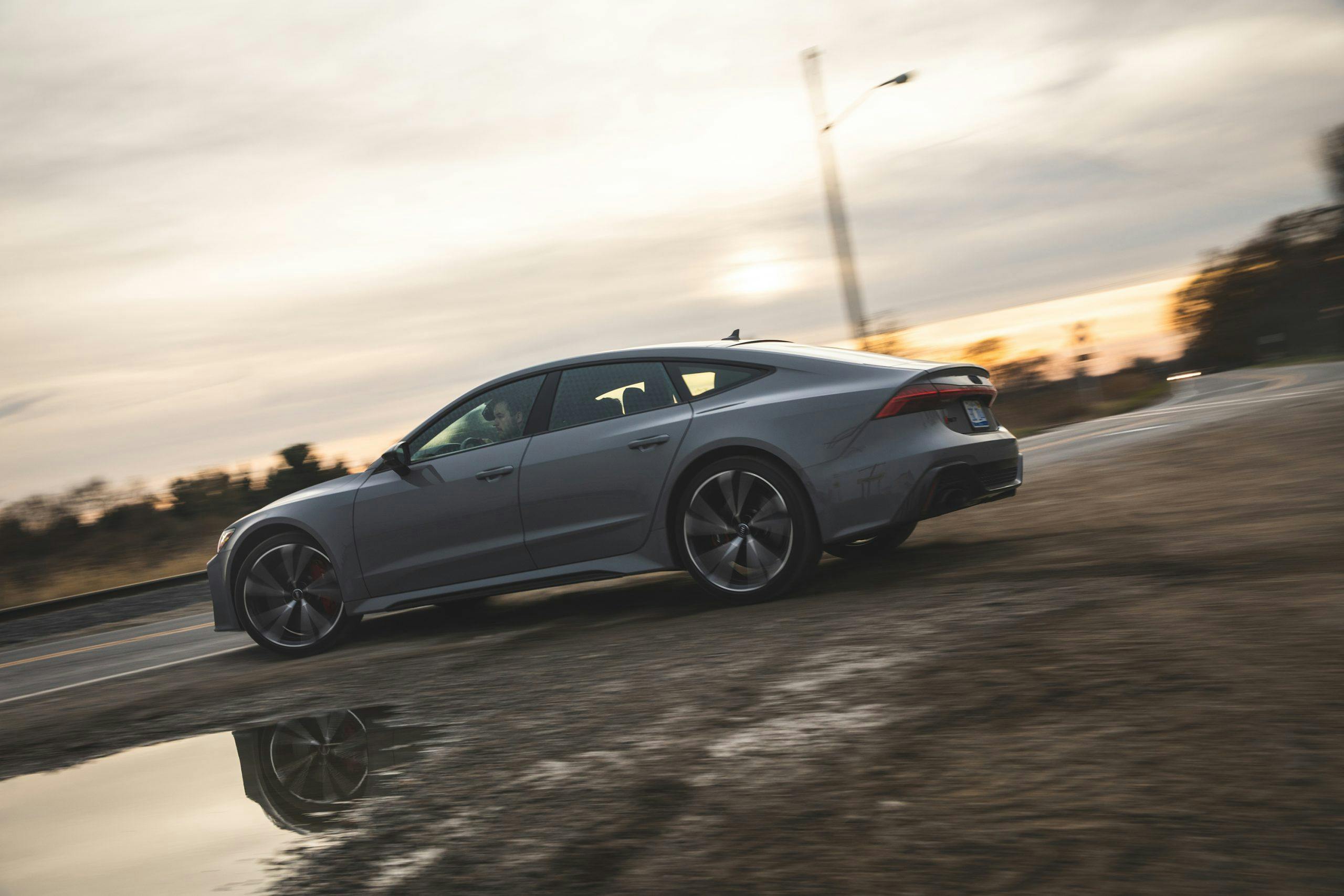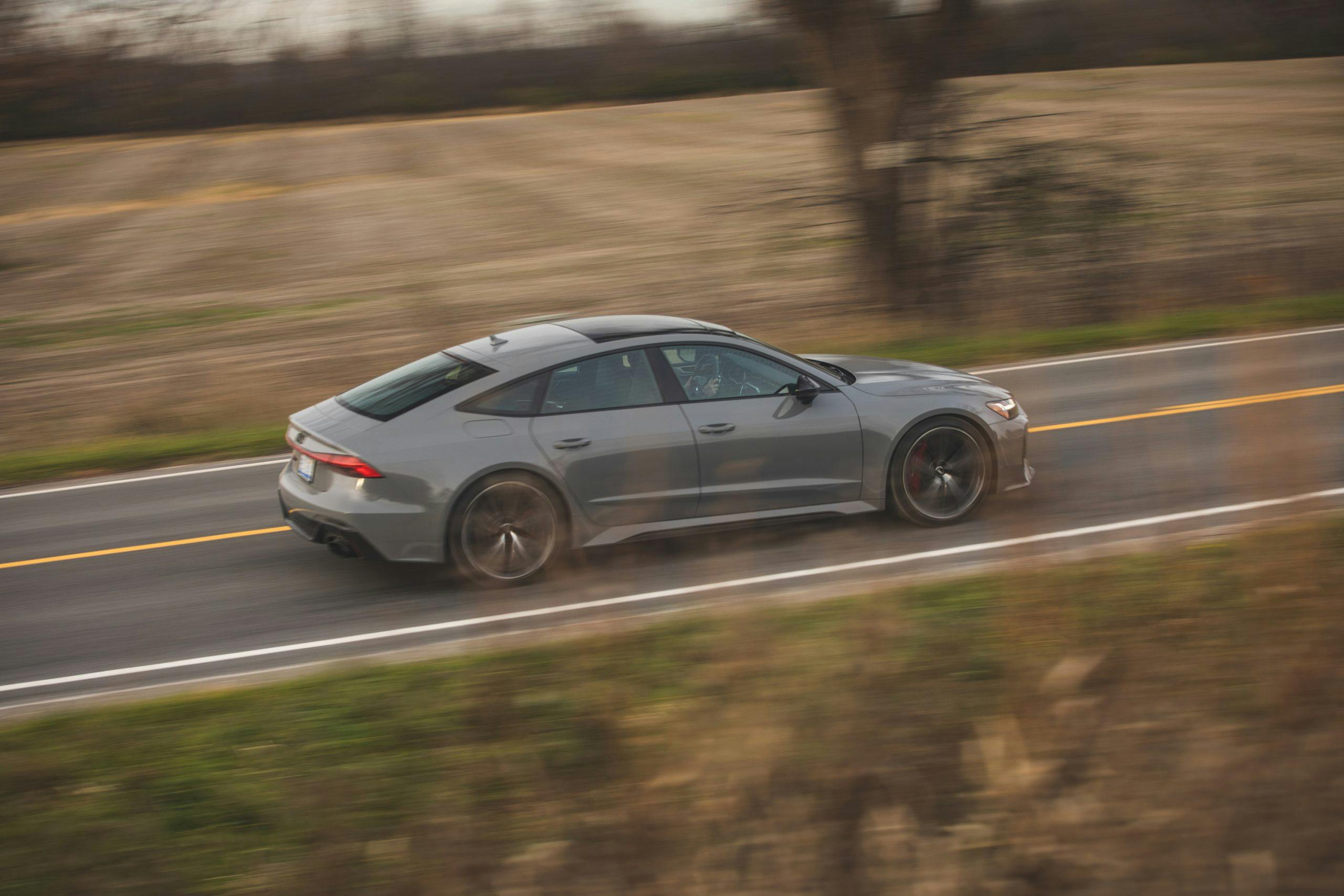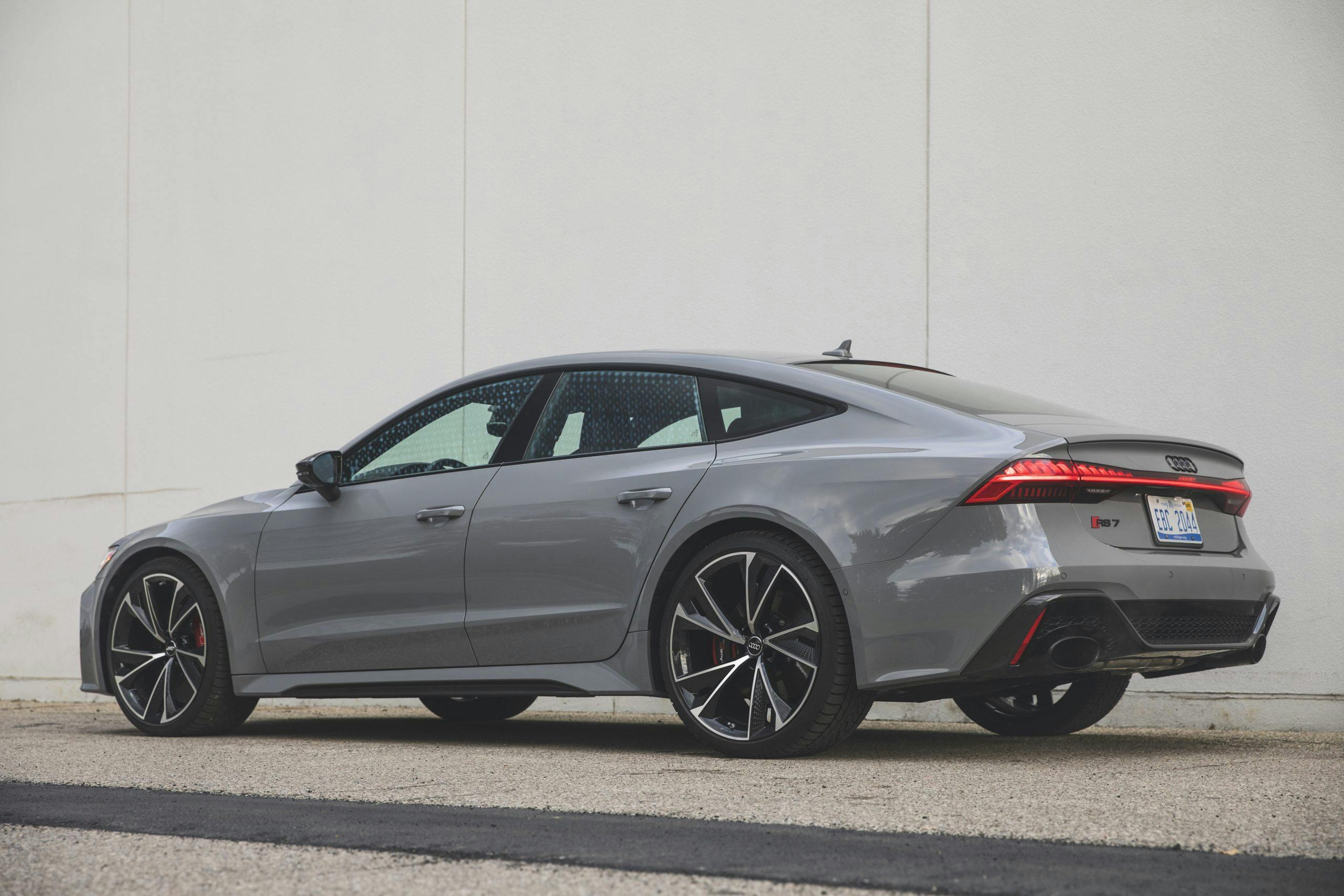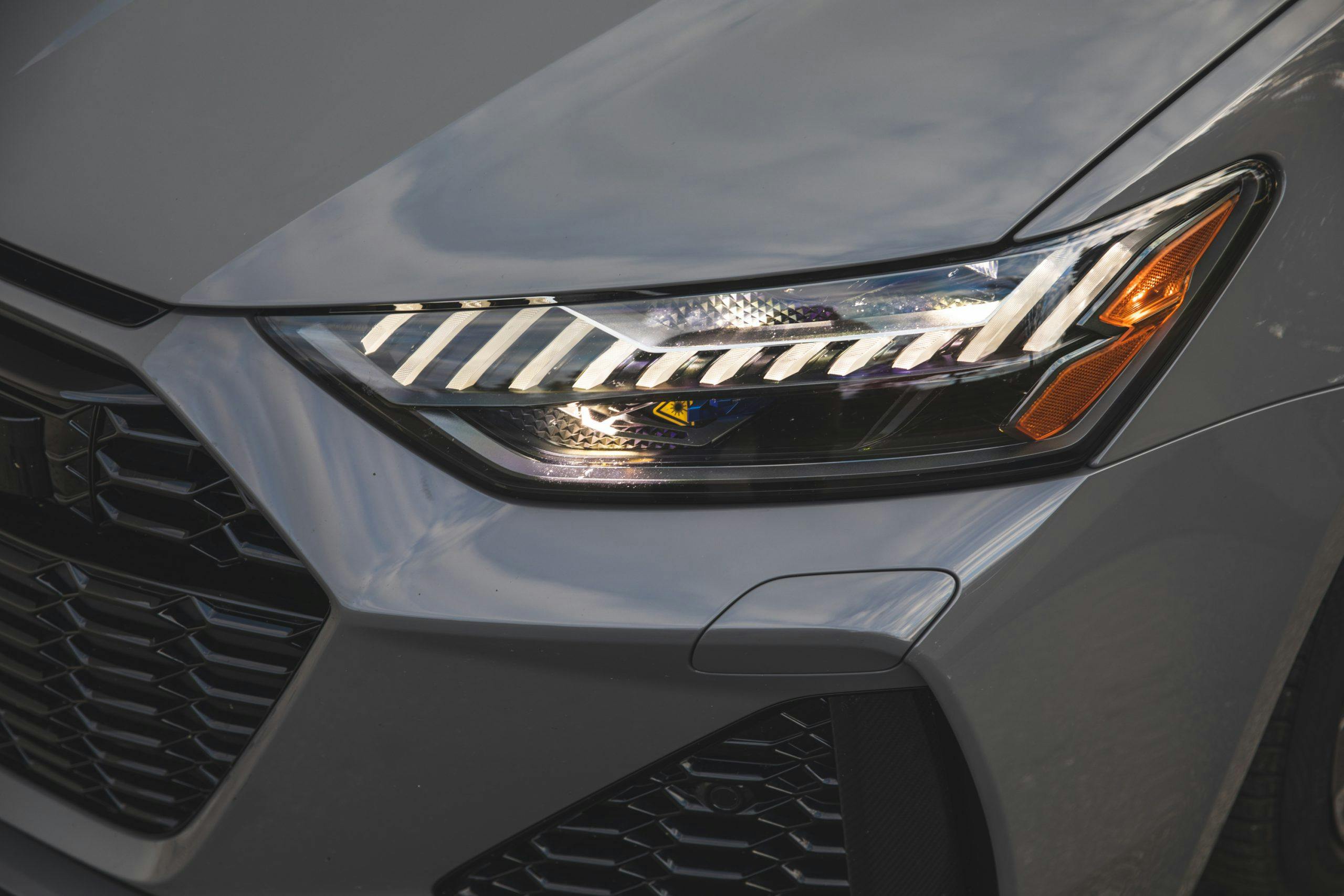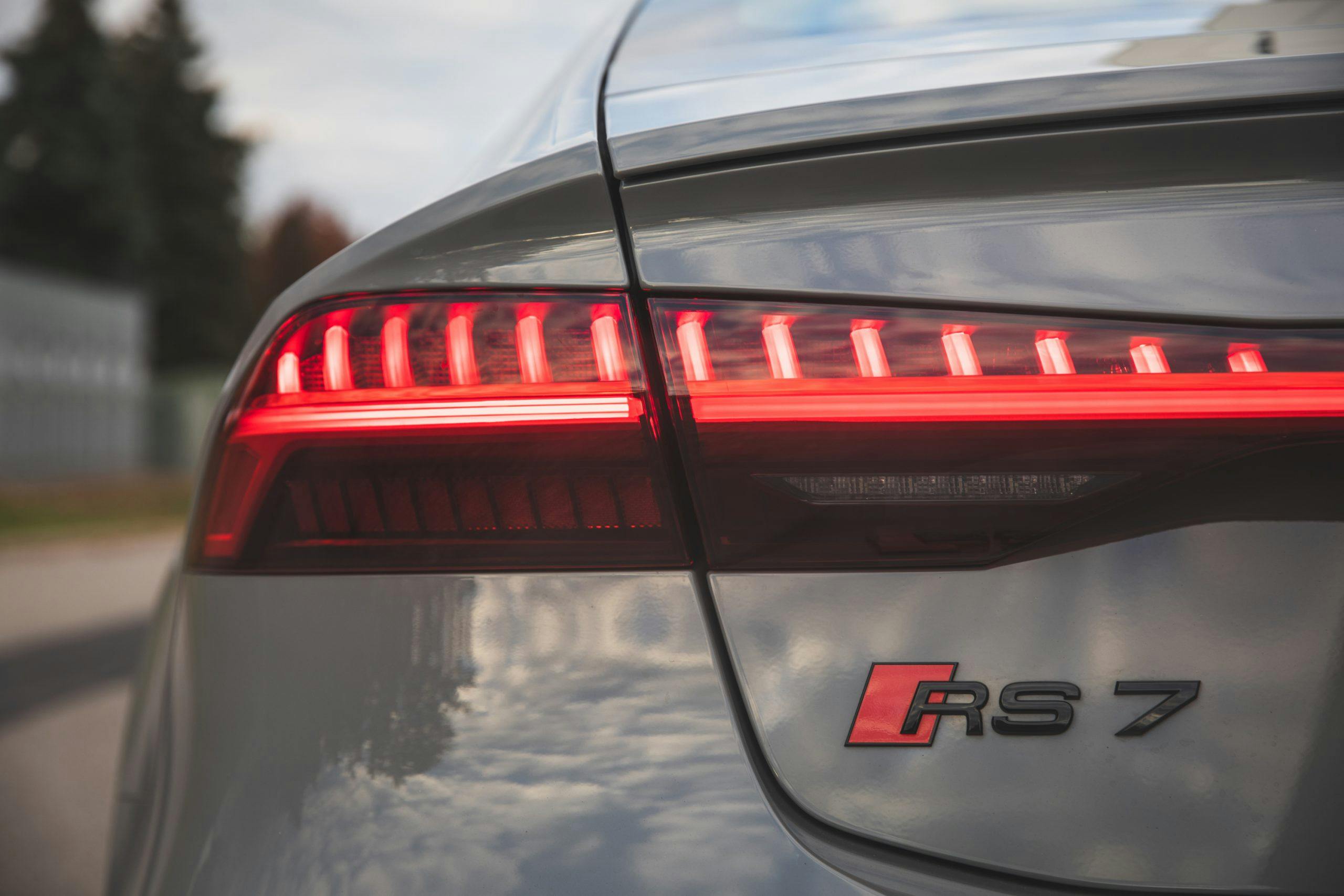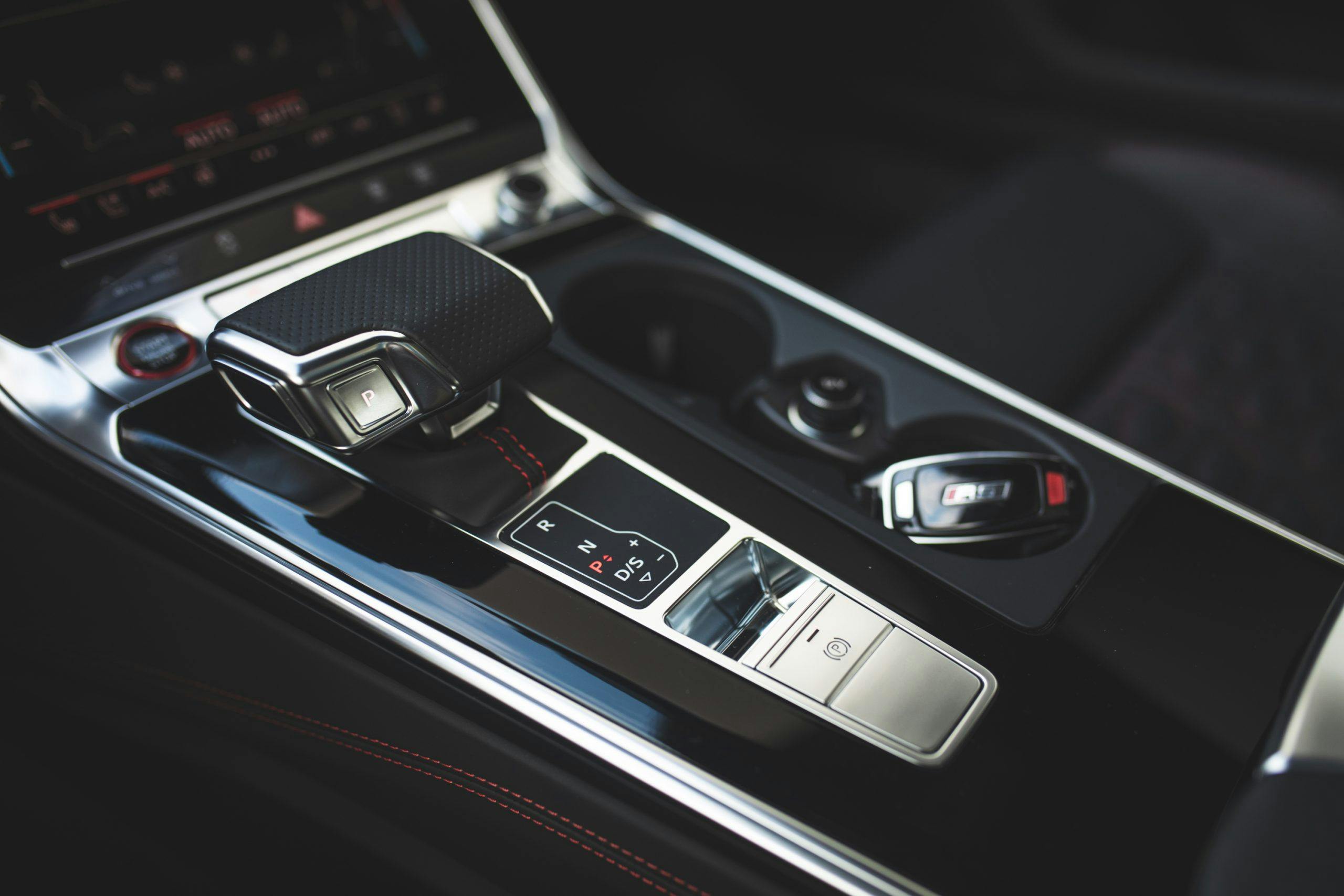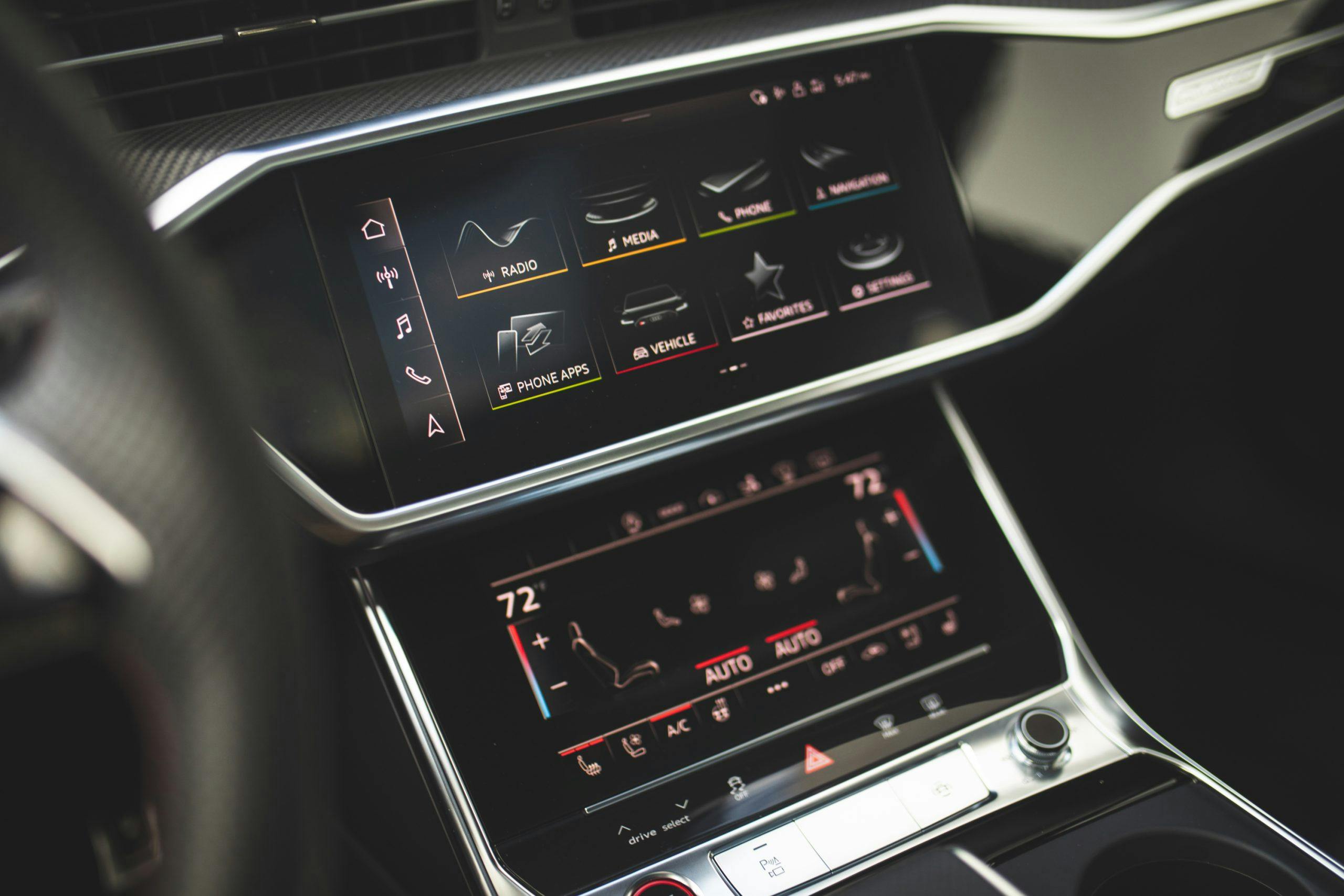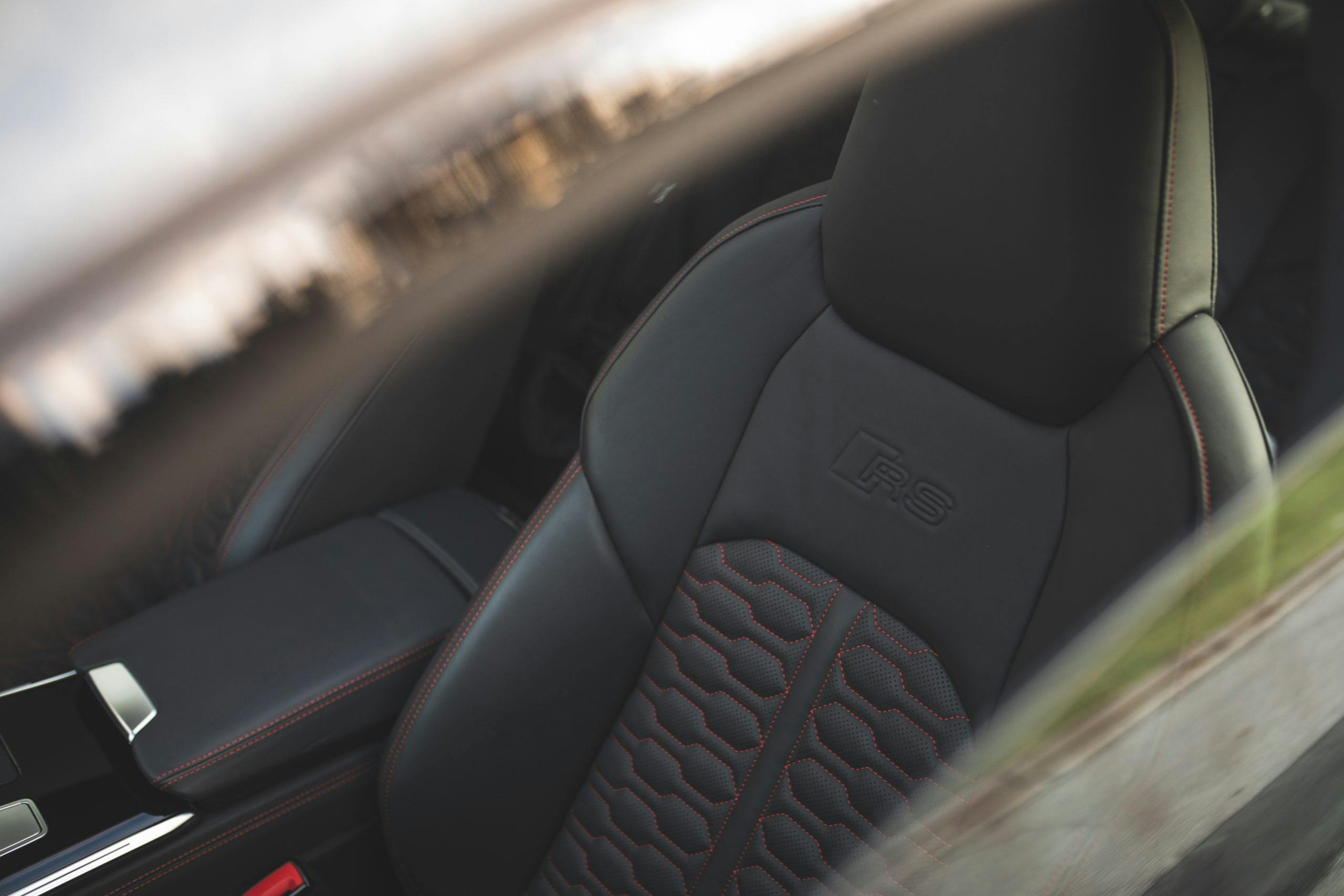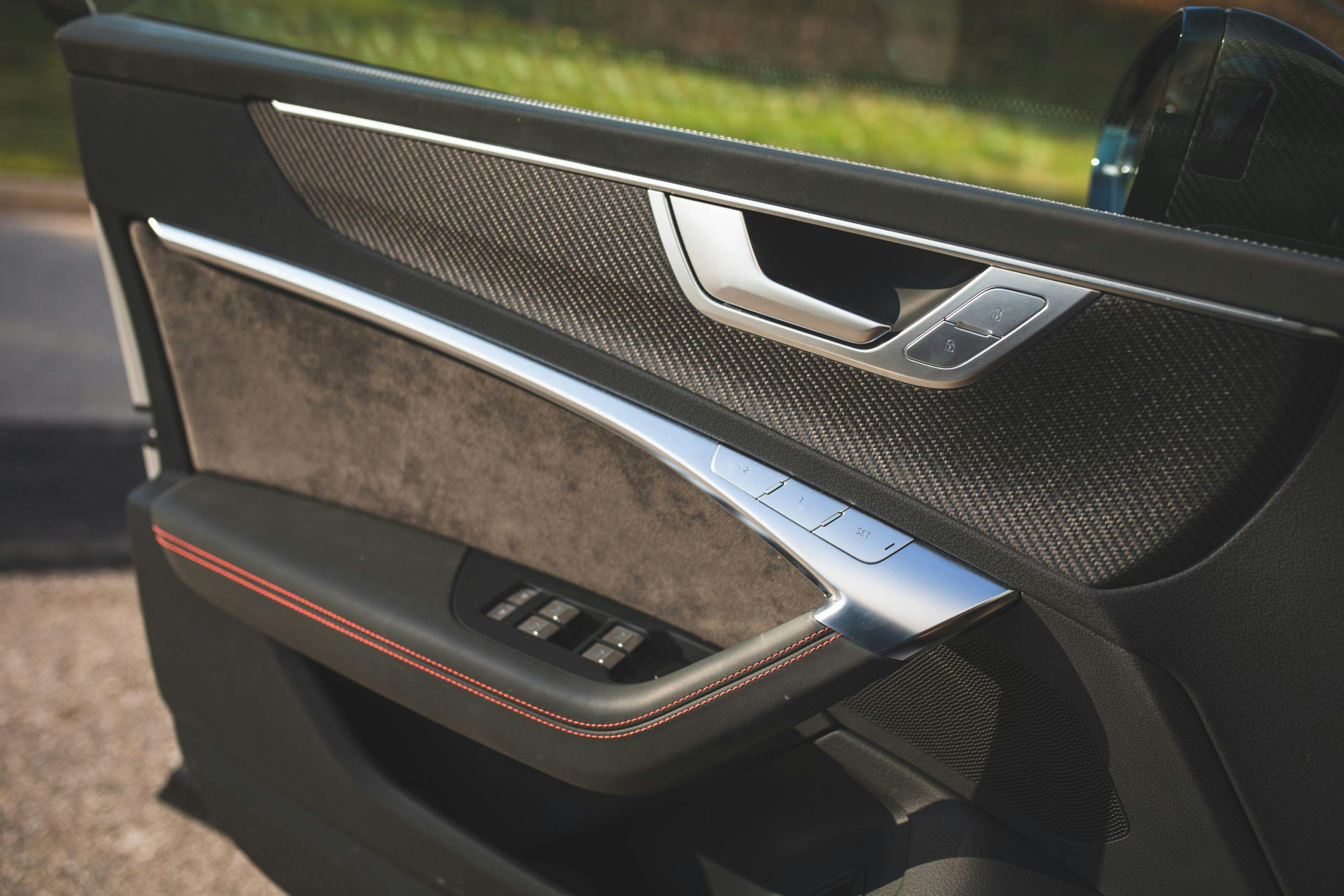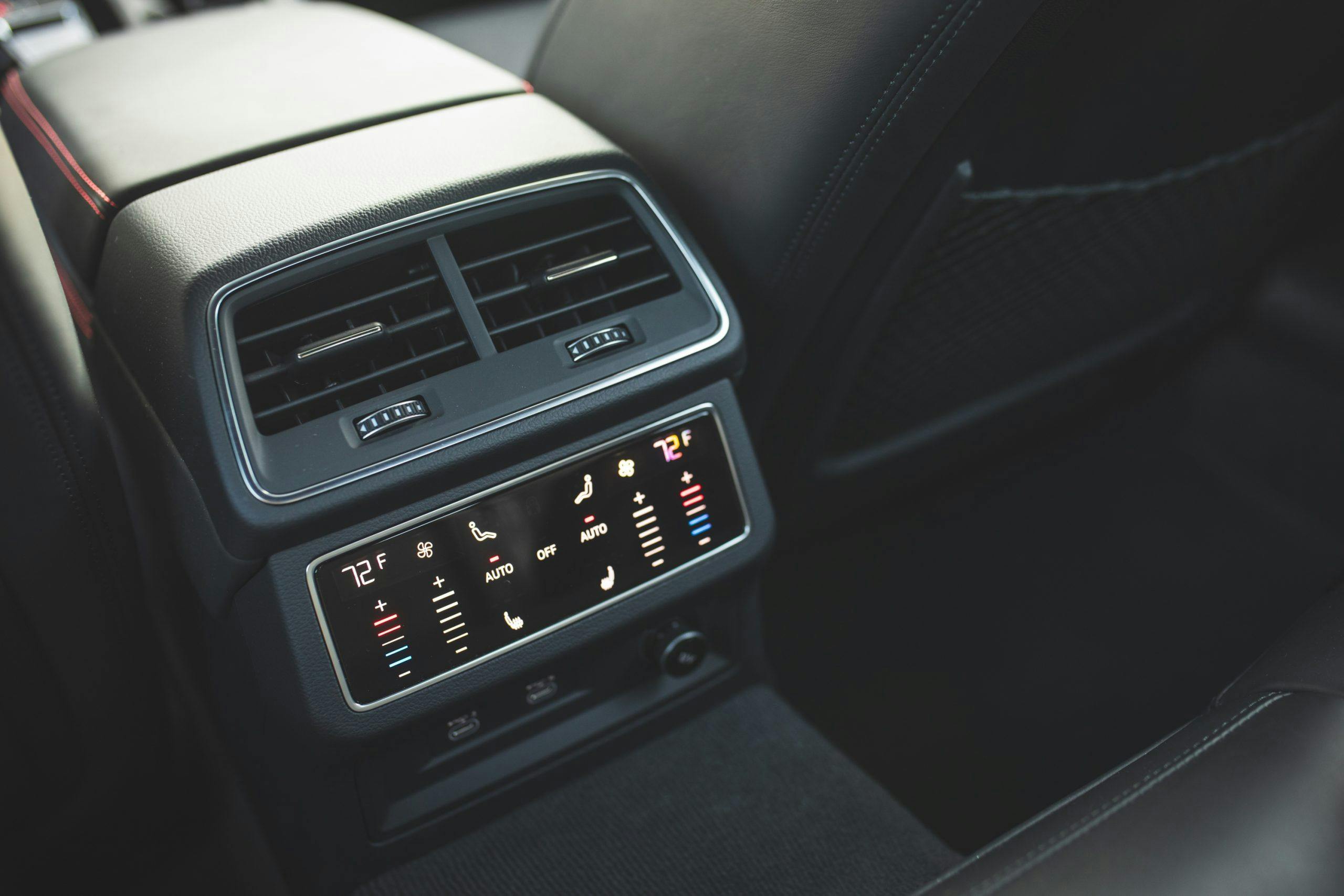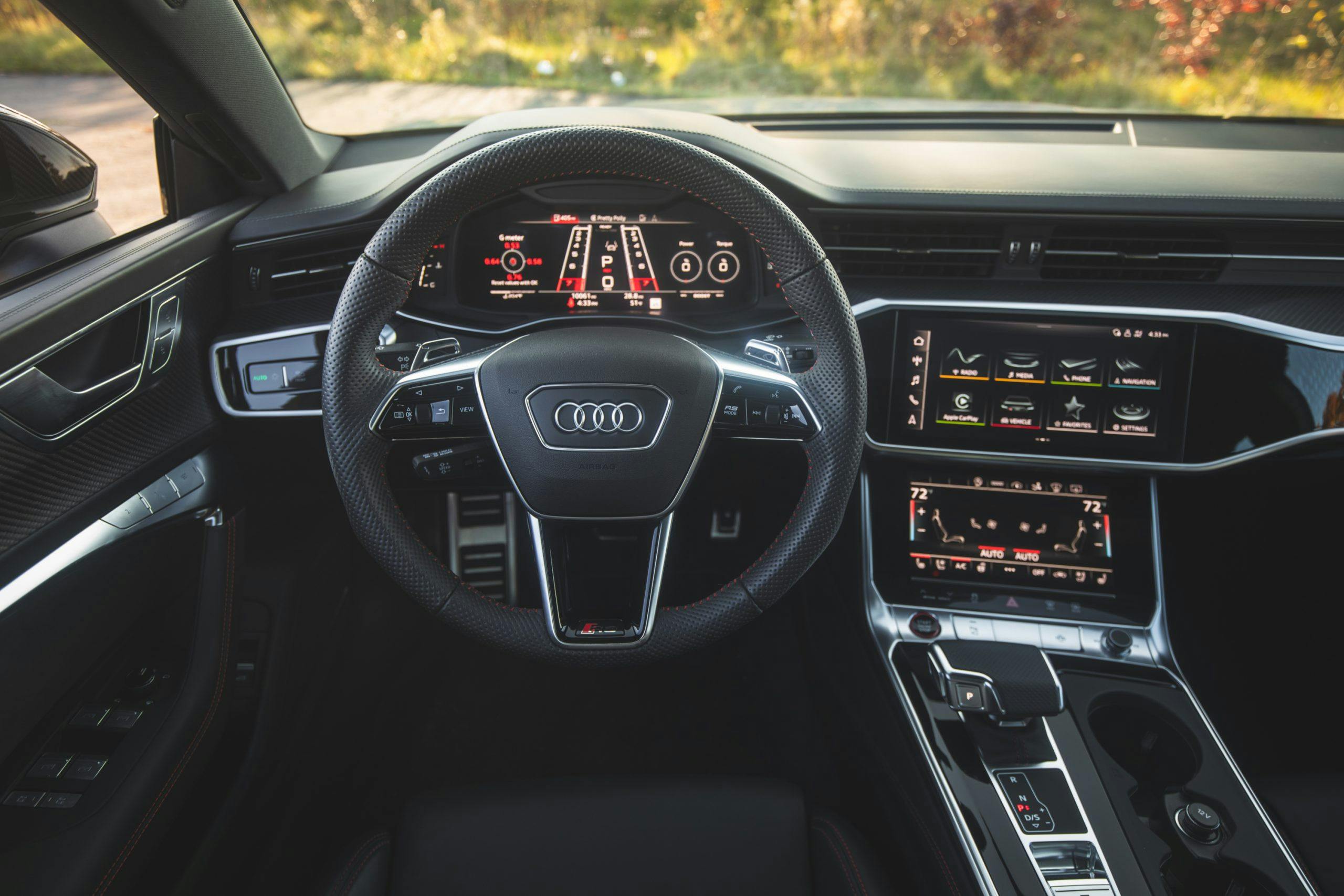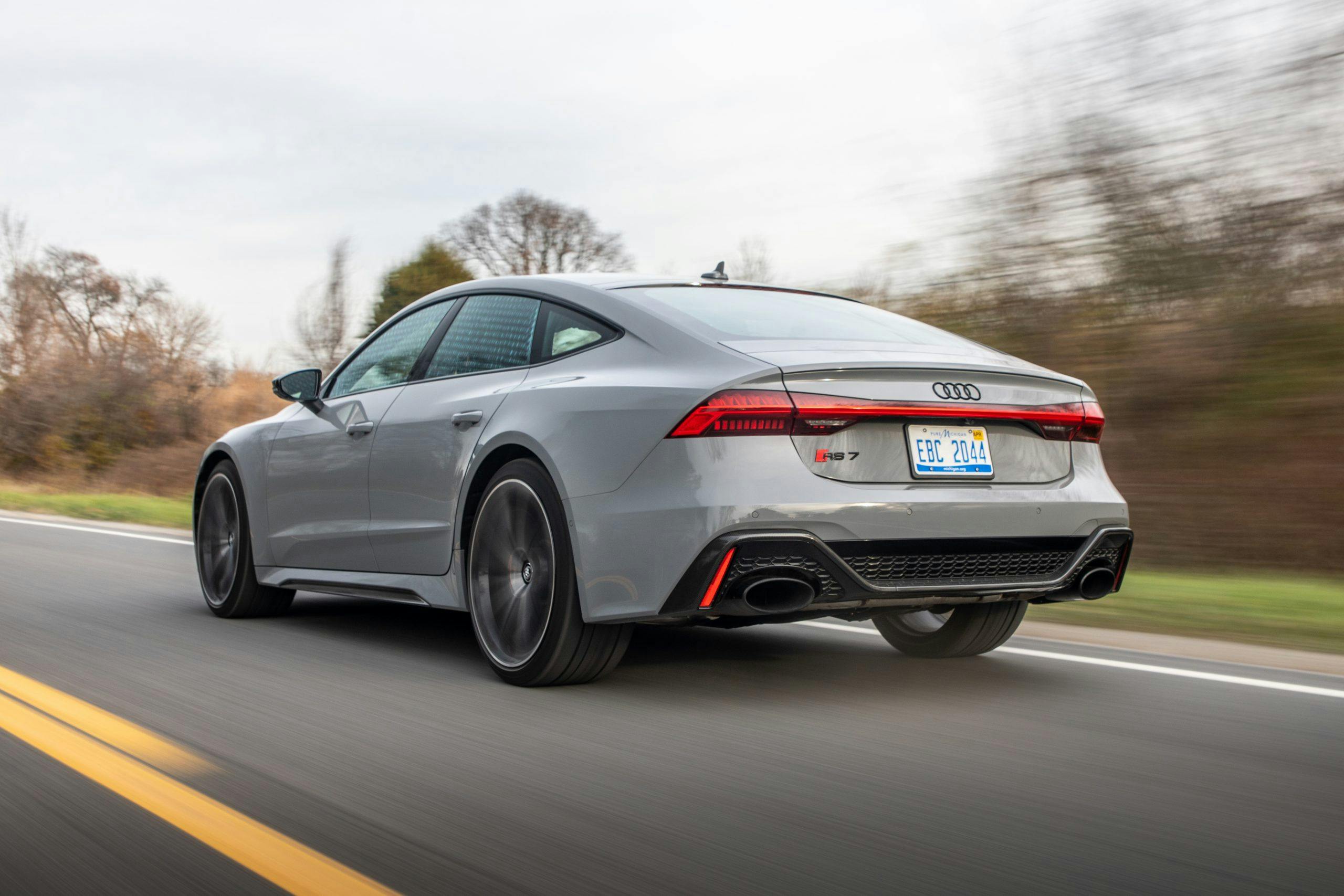Media | Articles
Review: 2021 Audi RS 7
Eight years ago, Audi added a full measure of brutality to its elegant A7 “four-door coupe.” The result was memorable—think prone Brancusi sculpture speeding atop quad MIT-undergrad-engineered rocket skates. This was a year before the first Challenger Hellcat, a quaint time when 560 hp from a 4.0-liter twin-turbo V-8 was truly astounding, all-wheel drive wasn’t ubiquitous as heated seats, and eight speeds seemed like the maximum for any gearbox. Zero to sixty was dispatched in roughly 3.5 seconds, and the car’s limit of 190 mph on the autobahn was the only concession to protecting its tires. It was ferocious. Sophisticated. Expressive—especially for the normally conservative Audi.
That first RS 7 wasn’t just good. It was better-looking, more practical, and more poised than the rowdy Mercedes CLS63 AMG and lumbering M6 Gran Coupe against which it competed. Neither the CLS63 nor the M6 are around anymore, but the 2021 RS 7 is back a second generation, poised to pick up right where it left off.
Amid the coming onslaught of pure-electric performance to which Audi has committed, this latest RS 7 appears to promise a majestic, exultant celebration of complex machinery and eight-cylinder internal combustion. The ingredients are surely there. Then why did we walk away from a $136,945 test car wondering, as the French say, “where’s the fire?”
On paper, the RS 7 is much the same prospect as before: a sub-600 hp, Quattro-driven four-door crescent with a 4.0-liter twin-turbo V-8, eight-speed automatic transmission, and six-figure MSRP. It once again employs a mechanical center differential combined with an electronically actuated rear differential, as well as adaptive air suspension. For this second generation—the bones of which remain closest to the A6 but based on the same MLB Evo platform underpinning everything from the A4 to the Bentayga—the RS 7 adds 31 horsepower, 74 lb-ft torque, a 48-volt mild-hybrid system, and 500 pounds of mass. For sharper handling and easier low-speed maneuvering, the RS 7 receives rear-wheel steering that convincingly disguises the car’s enormous, near-5000-pound heft.
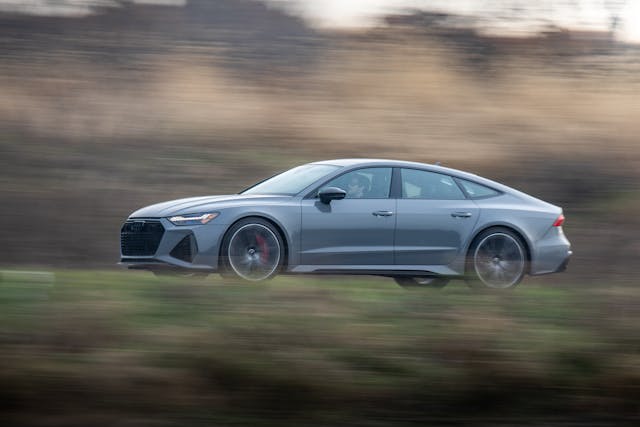
No doubt there is a spreadsheet somewhere on a laptop in Ingolstadt that demonstrates the various ways in which this RS 7 is faster, more efficient, and technologically superior than its predecessor in every way. These are measurable improvements, which we are not here to debate. (For one, there are obvious advantages to an adaptive air suspension that can make a stiff structure riding on 22-inch wheels feel downright cushy.) Less clear is how a 591-hp, 190-mph German bazooka shell with $9000 of carbon-ceramic brakes, $6650 of carbon-fiber trim, and $1000 of sport exhaust manages to feel, at times, prosaic.
Marketplace
Buy and sell classics with confidence
At times, we said. The engine is a stupendous, marvelous thing. Aside from the mild turbo lag and occasional reluctant downshift, there is relentless, unending power on tap. But unlike the twin-turbo V-8s in the M5 and E 63, which have a sense of continuous building and monumental swelling to redline, the RS 7’s motor is more of an all-at-once “on” switch. It’s heroic, but a touch lacking in character. Launch control is easy at pinning the brake pedal with your left foot, flooring the right until the computer holds the revs at the optimal speed, and then releasing the brake. The rear end immediately hunkers down as the front end gently lifts, all four wheels clawing as the humongous gray blur hurtles down the road at the behest of all four wheels and untold computing power. It’s impressive capability; Audi says 3.5 seconds, but it feels like closer to 3.0 even on our test car’s winter tires. A whiff of hesitation from the transmission during hard acceleration has a way of interrupting the sense of all-out-assault. This same engine is arguably better suited to its pairing with a snappy dual-clutch in the Panamera Turbo S than to this conventional ZF eight-speed.
The undeniable strength of this engine is seemingly at odds with Audi’s insistence on disrupting one’s experience of it. Despite the sport exhaust system there isn’t much in the way of growl, either inside the car or outside it. Cylinder deactivation neutralizes half of the engine in order to preserve fuel in high gear and all of it to coast or harvest kinetic energy at speeds below about 14 mph. Yes, these functions are suspended in full-attack Dynamic mode, but one shouldn’t have to tap the proper buttons to have the V-8 fully primed and at the ready.
When we say “buttons,” of course, we mean that (mostly) figuratively. Aside from the genuinely useful ones on the steering wheel, including the programmable “RS Mode” button to send the RS 7 into attack stance, the interior is organized around three large screens. The two touchscreens in the center stack are responsible for most controls, with the bottom reserved for climate and the top for just about everything else. The only knob is for volume. The system does not register light touches, which means you aren’t likely to select anything accidentally, but it does require a slightly annoying “hard press” that yields a haptic feedback response to indicate the command has been executed. It’s really not so bad until the car shuts off and every one of your grubby finger smudges is laid bare to see.
The screen behind the steering wheel is Audi’s Virtual Cockpit, arguably the best-designed and most creative all-digital cluster in the business. Audi’s use of real-time Google Earth and a dazzling, color-customizable array of ambient lightning makes you feel like Tony Stark in his Iron Man suit. As we drove past Michigan Stadium on a moonless night south of downtown Ann Arbor, the arena appeared on the screen behind the steering wheel in impressive overhead 3D, with M I C H I G A N spelled out in maize and blue in the south endzone.
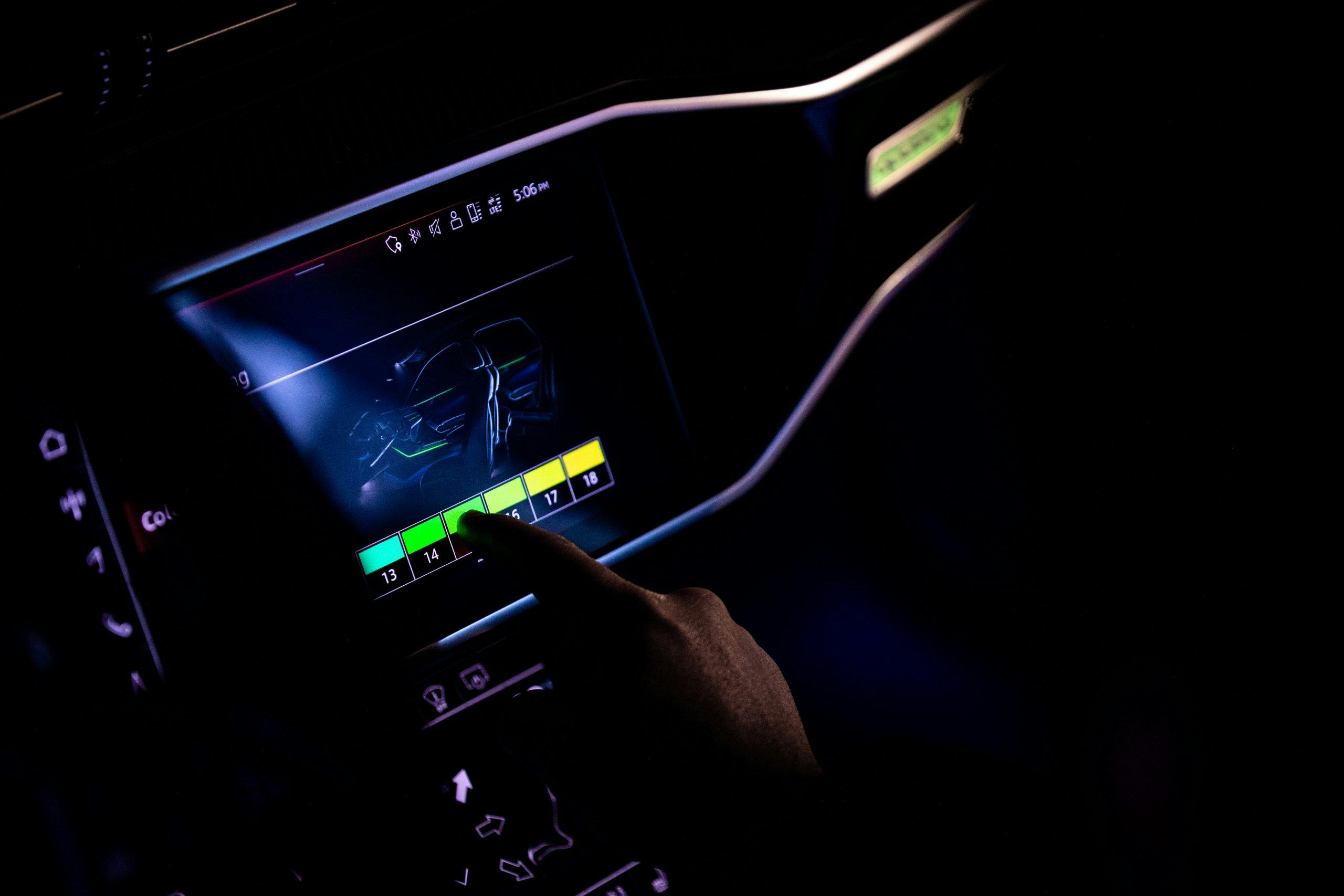
Tony Stark comparisons aside, the RS 7 would make for terrible Hollywood drama; it walks away from almost every other vehicle on the road. But it does so in confusingly undramatic fashion. Between the active suspension, electronic rear diff, and rear-wheel steering, you barely notice the highway on-ramp you’re devouring at 95 mph. This is a stupendous feat of engineering, especially given the RS 7’s, uh, generous size and weight. Alas, one hopes that capability would translate into more fun. In the best cars, there’s a joy in both sensing the physics at work and the car’s ability to overcome them—like flying the Millennium Falcon through a too-narrow canyon and somehow getting away with it. Reaching that threshold in the RS 7 is more or less impossible on a public road. By contrast, a grocery run in a comparable AMG E 63 might well be the highlight of one’s day, without ever breaking the speed limit. The RS cuts a sharper silhouette than the E 63 sedan, but the Benz sounds better, responds with more nuanced feedback to inputs, and costs about the same.
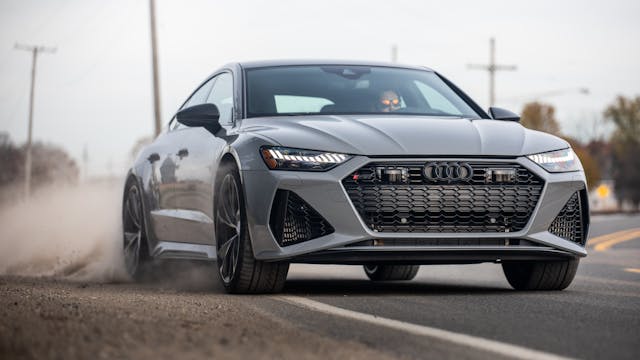
It seems that the experience Audi is striving for with the RS 7 would be just as well—if not better—fulfilled by a pure-electric car. And judging by Audi’s stated ambitions to be a pure-electric brand by the mid-2030s, that is clearly the direction things are headed. In fact, the Taycan-adjacent Audi RS e-tron GT is already on sale starting at just north of $140,000. Audi’s future as a maker of performance cars will much more likely to resemble the RS e-tron GT than the RS 7. Let’s hope there’s another act in the Audi ICE play, one that ends on a higher note.
2021 Audi RS 7
Price: $115,045/$136,945 (base/as-tested)
Highs: Monstrous V-8 engine, looks that kill, liftback bodystyle with crossover-like cargo space.
Lows: Muted dynamic feedback, too-subtle engine note, transmission could be snappier.
Summary: The follow-up to an undeniable winner, the second-gen RS 7 feels caught between the ace it was and the all-electric blur it will be one day soon.









